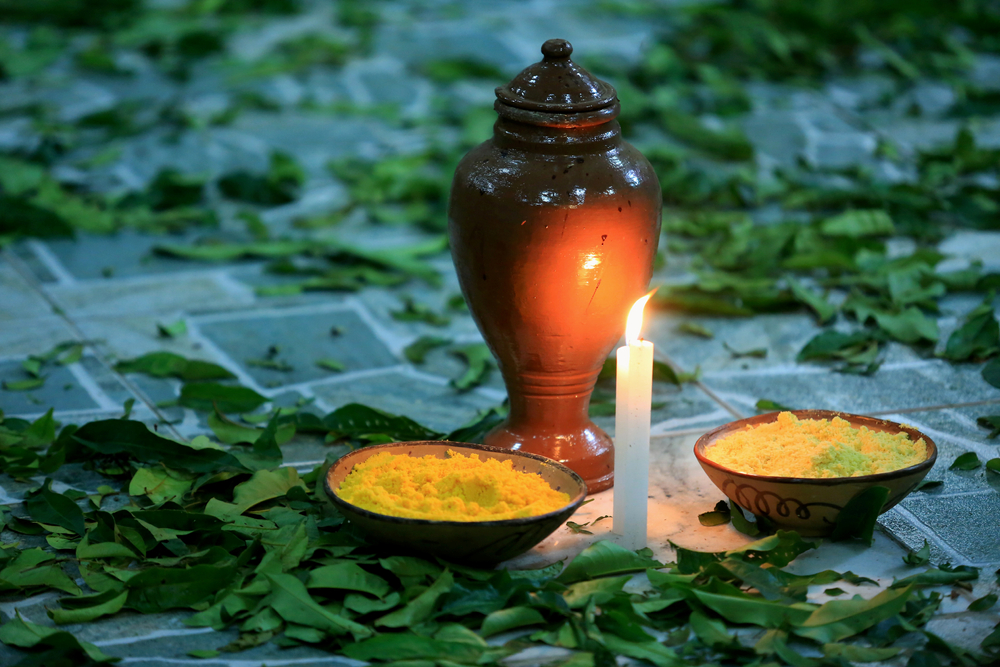
Obeah describes a set of spiritual healing and justice administration beliefs and practices created and developed by enslaved Africans primarily in the West Indies. Obeah traditions and rituals do vary among adherents, especially between the various nations of the Caribbean. Despite this, the practice bears similarities to other religions of the African diaspora, such as Haitian Vodou, Santería, and Hoodoo, especially when it comes to communication and interaction with the spirits of ancestors. Unlike other faiths, there isn’t a specific set of deities to be worshipped. Let’s take a closer look at Obeah’s history and practice.
Understanding Obeah
Like Vodou, Candomblé, and other African faiths, Obeah originated with Africans who believed in folk healing and the use of magic for beneficial and malevolent purposes. Adherents in countries like Jamaica and Barbados don’t typically use the term to describe their practices. They view their spirituality as spell-casting. Unsurprisingly, to outsiders, Obeah is seen as black magic or the dark arts, not unlike Vodou. In fact, some people refer to these practices as Jamaican Voodoo. Since the 1700s, practicing Obeah has been punishable by law, resulting in imprisonment or flogging in several West Indian nations, many of which have had a strong Christian influence. While some countries have repealed flogging and imprisonment, it is still illegal to practice Obeah in many places.
There is some debate among religious scholars as to the exact origins of the word “Obeah.” Some believe that it was coined based on the word obaiyo, which was associated with witchcraft by the Akan people of Ghana. Other scholars contest that the term began with the Igbo people of Nigeria, who used the term obia to describe healers. In colonial British communities, the word was often used to describe an object believed to have magical properties, such as a talisman or charm. It was not uncommon to hear the terms obeah-ring or obeah-stick used.
Practicing the Religion
The supernatural side of these practices mostly involves casting spells, protecting people, conjuring fortune and riches, and warding off evil spirits. Historically, practitioners often asserted their spiritual authority as retaliation for violence and as resistance toward the colonists who enslaved them. The healing or medical side of Obeah involved using particular plants and animal products to treat illnesses in ways considered unorthodox by European doctors. These healing practices came from Indigenous Caribbeans who held deep knowledge about the natural resources of the islands. While Obeah medicine was not viewed as threatening to European colonization like wizardry was, Obeah medicine was the subject of scorn and ridicule by some European scientists and writers.
Exploring Obeah Today
In Jamaica and other nations, Obeah has mostly died out in urban areas. Adherents live primarily in rural areas and openly practice their beliefs in defiance of the law. It is not uncommon to see visitors seeking the guidance or services of healers. Many practitioners see themselves as having a gift to be used to help others in curing illnesses and removing curses.
It has been a long time since anyone has been punished for practicing Obeah in Jamaica. Some politicians believe that if punishment by whipping is outlawed, then Obeah should be completely decriminalized. Still, there are many people who view these practices as taboo. Retailers who sell products to practitioners aren’t generally open about conducting business, and many seekers of guidance are reticent about the services they receive.
Obeah is often misunderstood and maligned, and it started with European influences and colonization. Made illegal and punishable in Jamaica and other nations, the religion has survived through covert practice and the discreet continuation of cultural traditions. It’s important to recognize that this belief system provided a framework for resistance and justice among enslaved Africans and as such is a symbol of the indomitable spirit among West Indian ancestors and their descendants.

